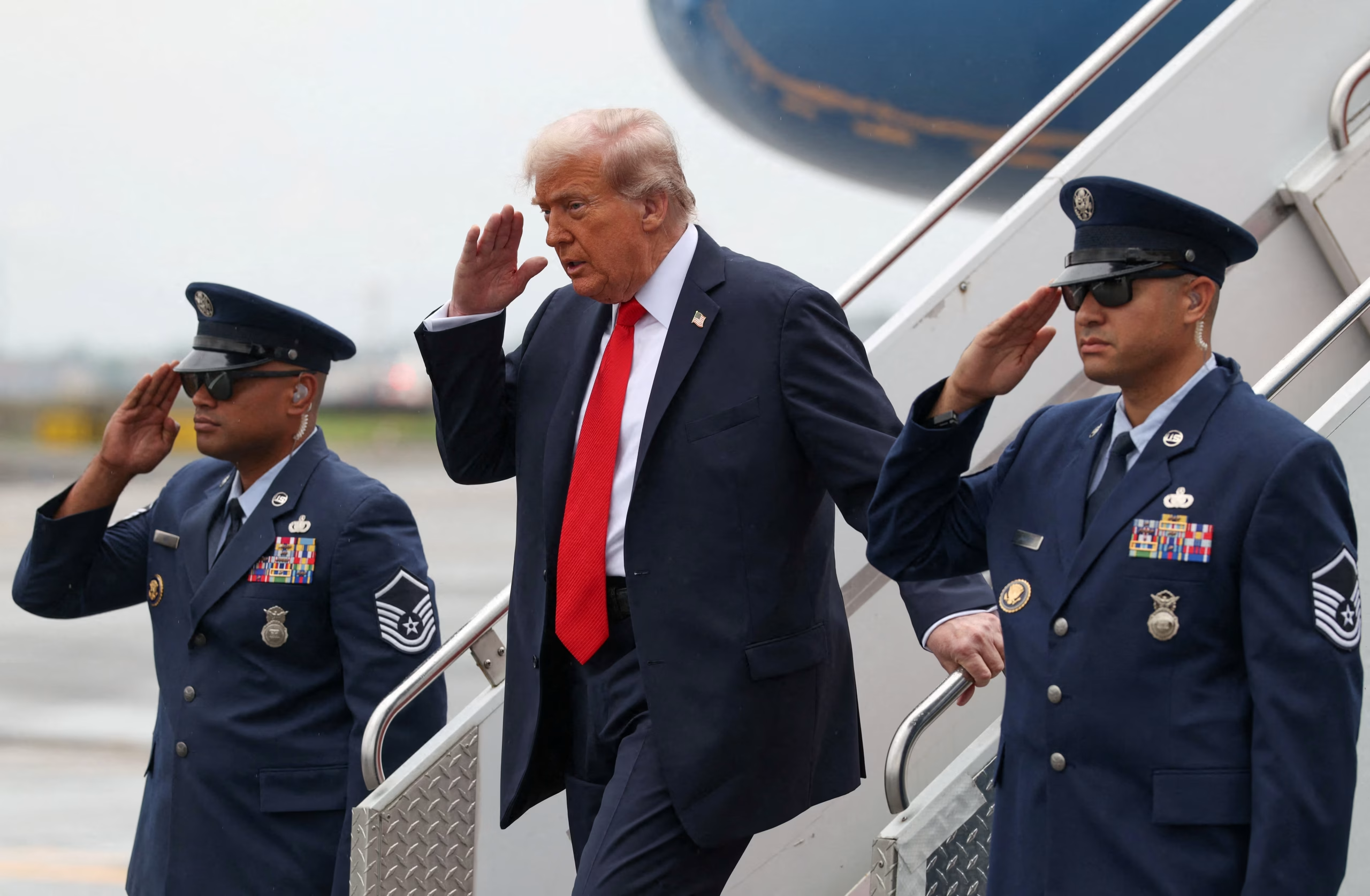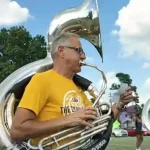Public opinion in the United States is sharply divided as a new CBS News poll reveals mixed reactions to former President Donald Trump’s plan to deploy the National Guard in major cities. The proposal, framed as a bold move to reduce crime, has sparked heated debate about safety, civil liberties, and the role of federal power in local governance. For some Americans, the plan represents a necessary step to restore order, while for others, it signals an overreach that could endanger constitutional rights.
- What the CBS News Poll Reveals
- Historical Context of National Guard Deployments
- The Crime Debate in American Politics
- Civil Rights Concerns and Constitutional Questions
- Supporters of Trump’s Proposal
- Opponents and Their Fears
- Expert Opinions and Analysis
- Public Opinion and the 2024 Political Landscape
- Implications for Cities Like Chicago
- FAQs
- What did the CBS News poll find about Trump’s National Guard proposal?
- Why is deploying the National Guard controversial?
- How have National Guard deployments been used historically?
- Would National Guard deployment actually reduce crime?
- How could this debate affect U.S. politics?
- Conclusion
This controversy highlights a deeper national struggle over balancing security with freedom, a theme that has repeatedly surfaced throughout U.S. history. Just as Americans debated curfews during wartime or surveillance after 9/11, today they are wrestling with the question of how far government should go in fighting crime without eroding the very liberties it seeks to protect.
What the CBS News Poll Reveals
According to the CBS News survey, the country is almost evenly split on Trump’s proposal. A significant portion of respondents expressed support, citing fears of rising crime rates and frustration with what they view as ineffective local leadership. However, an equally strong bloc voiced opposition, worried about the militarization of neighborhoods and the potential targeting of vulnerable communities.
The poll highlights one of the most pressing political divides in America: urban versus rural perspectives. City residents, who often feel the most immediate effects of both crime and policing, were more skeptical of the deployment, while suburban and rural respondents leaned toward supporting a show of force. These results reflect not only differences in geography but also broader cultural and political divisions that have long shaped American attitudes toward law and order.
Historical Context of National Guard Deployments
The debate over deploying the National Guard is not new. Throughout history, presidents and governors have used the Guard to respond to crises ranging from natural disasters to civil unrest. During the 1960s civil rights movement, the National Guard was called into cities like Detroit and Little Rock, sometimes protecting civil rights activists but often being perceived as suppressing protests.
In more recent memory, Guard troops were deployed in 2020 during the nationwide protests following George Floyd’s death. While some citizens welcomed their presence as a stabilizing force, others viewed it as an intimidation tactic that escalated tensions. This history shapes how Americans view the Guard today—either as defenders of order or symbols of heavy-handed state power.
The Crime Debate in American Politics
Crime remains one of the most emotionally charged issues in U.S. politics. According to FBI statistics, certain categories of violent crime have seen increases in recent years, while others have declined. For example, murders rose sharply in 2020 and 2021, sparking widespread public concern, but property crime and burglary rates have fallen compared to previous decades. These mixed statistics create space for competing narratives: one emphasizing crisis and the other stressing progress.
Trump has positioned himself firmly within the “law and order” tradition of American politics, echoing strategies once used by Richard Nixon and Ronald Reagan. His promise to use the National Guard taps into public anxiety about urban crime, while also appealing to voters who believe local governments are failing to maintain control. Critics argue, however, that such measures risk criminalizing poverty and disproportionately targeting minority communities rather than addressing root causes of crime.
Civil Rights Concerns and Constitutional Questions
Civil rights advocates have raised serious concerns about what National Guard deployment would mean for constitutional protections. The Fourth Amendment guarantees freedom from unreasonable searches and seizures, while the First Amendment protects peaceful assembly. Deploying military-style forces in civilian neighborhoods risks blurring the line between law enforcement and combat operations.
Legal scholars also point to the Posse Comitatus Act, which limits the federal government’s ability to use military forces for domestic law enforcement. While the National Guard has a unique status that allows deployment in certain situations, critics argue that stretching its use for routine crime-fighting could set a dangerous precedent. As one constitutional law professor explained, “The military is trained to neutralize enemies, not to engage in community policing. That fundamental difference in mission makes civilian liberties more vulnerable when troops are deployed on U.S. soil.”
Supporters of Trump’s Proposal
Supporters argue that extraordinary measures are necessary in extraordinary times. Citing increases in violent crime in cities such as Chicago, St. Louis, and Baltimore, proponents believe federal intervention could save lives. For them, deploying the Guard represents not militarization but protection.
One retired police chief told CBS News, “If local officials cannot control crime, then the federal government has a responsibility to step in. Families deserve to feel safe in their neighborhoods, and sometimes that requires a stronger show of force.” Many supporters also see the deployment as temporary, envisioning it as a stopgap measure until local law enforcement regains control.
Opponents and Their Fears
Opponents warn that this strategy risks escalating rather than reducing tensions. Community leaders in urban areas often stress that crime cannot be separated from systemic issues like unemployment, housing instability, and lack of access to mental health services. They argue that flooding neighborhoods with armed soldiers will not address these root causes and may deepen distrust between residents and government.
Civil rights groups also worry about profiling. If troops patrol minority-majority neighborhoods, critics fear it will reinforce harmful stereotypes and lead to discriminatory enforcement practices. Past deployments during protests have already sparked lawsuits, raising concerns about further erosion of public trust.
Expert Opinions and Analysis
Experts remain divided on whether deploying the National Guard is an effective long-term strategy. Criminologists generally emphasize community-based policing, investment in social services, and evidence-driven approaches like violence interruption programs. They argue that while visible shows of force may produce temporary drops in crime, they rarely lead to lasting improvements.
Political analysts, however, note the symbolic power of such proposals. By calling for National Guard deployment, Trump reinforces his brand as a tough-on-crime leader, even if the policy’s practical effectiveness remains contested. “This is as much about political messaging as it is about crime reduction,” said one policy researcher. “It signals to voters that Trump is willing to take bold action, regardless of the controversies.”
Public Opinion and the 2024 Political Landscape
The CBS News poll results are particularly significant because they reveal how crime and public safety could shape the upcoming election cycle. Republicans are expected to lean heavily on law-and-order messaging, while Democrats may highlight concerns over civil liberties and emphasize prevention-based solutions. For independent voters, the issue could prove decisive, depending on whether they prioritize immediate safety or long-term reform.
Pollsters also note generational divides. Younger voters are more skeptical of deploying the Guard, reflecting their stronger concerns about racial justice and police reform. Older voters, on the other hand, tend to support tougher enforcement measures, aligning with their perception that crime has worsened in recent years.
Implications for Cities Like Chicago
Chicago has emerged as a symbolic epicenter of the debate. Senator Tammy Duckworth warned that Trump’s proposal amounts to “declaring war” on the city, pointing out that there are no formal plans for deployment but acknowledging the seriousness of the rhetoric. Chicago has long struggled with high-profile gun violence, but community activists argue that real solutions lie in investment, not militarization.
The city’s leaders must now navigate a delicate balance between addressing residents’ legitimate fears of crime and resisting federal overreach. Their choices may serve as a model—or cautionary tale—for other cities facing similar pressures.
FAQs
What did the CBS News poll find about Trump’s National Guard proposal?
The poll revealed that Americans are deeply divided, with many supporting the idea to combat crime while others oppose it due to concerns about civil liberties and militarization of neighborhoods.
Why is deploying the National Guard controversial?
The controversy centers on fears of militarization, constitutional concerns, and the potential targeting of minority communities. Supporters see it as necessary for safety, while critics view it as a threat to democracy.
How have National Guard deployments been used historically?
Historically, the National Guard has been deployed during civil unrest, natural disasters, and protests. While sometimes seen as stabilizing, these deployments have also raised concerns about suppression and overreach.
Would National Guard deployment actually reduce crime?
Experts disagree. While a show of force may temporarily deter crime, criminologists argue that long-term solutions require community investment, social services, and systemic reform.
How could this debate affect U.S. politics?
The issue is likely to play a major role in upcoming elections. Republicans may emphasize law and order, while Democrats stress civil rights and prevention. The split in public opinion makes it a pivotal campaign topic.
Conclusion
The CBS News poll showing divisions over Trump’s National Guard deployment reveals not only contrasting views on crime and civil rights but also the deeper ideological rifts within America. Supporters believe the move is necessary to restore safety and order, while opponents fear it undermines the Constitution and fuels distrust in government.
Ultimately, the debate underscores a timeless American dilemma: how to balance freedom with security. As the nation moves closer to the next election, this issue will remain at the forefront of political discourse, shaping how citizens define safety, democracy, and the role of federal power in their daily lives









